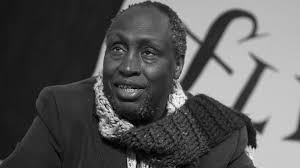The Impact of Ngugi wa Thiong’o on African Literature

Introduction
Ngugi wa Thiong’o is one of Kenya’s most prominent authors and literary critics, renowned for his work that challenges colonial narratives and champions Kenyan culture. His contributions to literature are not just confined to his writings but extend to his advocacy for the recognition of African languages and identities. Ngugi’s journey and literary theories hold a critical place in the discussion of post-colonial literature not only in Kenya but across the African continent.
Literary Contributions
Ngugi’s work spans novels, essays, and plays, with his most notable literary pieces including “Weep Not, Child,” “A Grain of Wheat,” and “Petals of Blood.” His writings often reflect the socio-political landscape of Kenya, grappling with the issues of colonialism, independence, and the quest for identity. In his later works, he has shifted toward writing primarily in his native language, Gikuyu, emphasizing the importance of linguistic heritage in shaping cultural identity and resistance against colonialism.
Advocacy for African Languages
Beyond his fiction, Ngugi has been a vocal advocate for the use of indigenous languages in literature and education. His revolutionary manifesto, “Decolonising the Mind,” underscores the significance of language as a vehicle for cultural identity. Ngugi argues that colonial languages perpetuate a sense of alienation among African peoples and calls for a reevaluation of how African stories are told.
Recent Developments
In recent years, Ngugi has continued to be active in the literary community, engaging with young writers and participating in international forums discussing literature, politics, and culture. In 2021, he was nominated for the Nobel Prize in Literature, a testament to his lasting influence and the recognition of his contributions on a global scale. His recent novel, “The Perfect Nine,” highlights the rich traditions and narratives that form part of Kenyan folklore and demonstrates Ngugi’s belief in the power of storytelling to inspire change.
Conclusion
Ngugi wa Thiong’o’s legacy is profound and far-reaching, encouraging new generations of writers to embrace their cultural roots and express their narratives in authentic voices. As the literary landscape continues to evolve, his emphasis on the importance of language and culture remains exceptionally relevant. As we look toward the future of literature, the enduring influence of Ngugi’s work will undoubtedly shape the way we understand African narratives and the complexities of identity in a post-colonial world.





